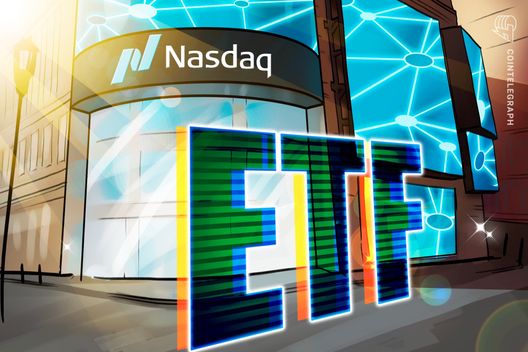- Kaspa, THORChain, Starknet, and Worldcoin were removed.
- 9 new unclassified projects include Babylon and Berachain.
- The asset list may change intra-quarter with fund rebalances.
Grayscale Investments has expanded its “Assets Under Consideration” list to 40 cryptocurrencies as of April 10, 2025.
This marks a shift from its January list, which featured 39 tokens, and continues the asset manager’s quarterly strategy of reviewing potential future products.
Alongside the expansion, Grayscale has formally launched single-asset trusts for Dogecoin (DOGE) and Pyth Network (PYTH), spotlighting the assets now making the leap from consideration to active investment vehicles.
The revised list also includes new entrants like VeChain and Plume while removing tokens such as Kaspa, Starknet, and THORChain across various sectors.
Dogecoin and PYTH enter trust products
Dogecoin and PYTH were both upgraded from Grayscale’s consideration list to formal trust products in early 2025.
The Grayscale Dogecoin Trust launched on January 31, followed by the Pyth Trust on February 18.
Dogecoin continues to be one of the most actively traded meme coins, while PYTH’s growth reflects increasing demand for on-chain oracle services.
Their addition follows Grayscale’s broader aim to diversify its offerings beyond Bitcoin and Ethereum-focused products.
Removals across key sectors
This quarter’s update saw multiple removals that indicate a narrowing of focus across Grayscale’s asset categories.
Kaspa was removed from the currencies section, which now includes no assets. Sei, Sonic, and Starknet were cut from smart contract platforms.
THORChain and Injective Protocol were dropped from financials, while Ai16z and Virtuals Protocol were removed from consumer and culture.
Grayscale also eliminated Flock.io, Hyperbolic, and Worldcoin from its utilities and services.
These changes reflect a redefined view of which assets Grayscale considers relevant to long-term product development.
New additions include VeChain and Plume
Several tokens have been added across sectors in this update.
VeChain has been included in the smart contract platforms category, potentially due to its continued push into enterprise use cases.
In financials, Plume Network and SYRUP have been added, while Aixbt by Virtuals has joined consumer and culture.
Geodnet (GEOD) now appears under utilities and services, and IP has been reclassified from utilities to consumer and culture.
In addition to reclassifications, nine new projects have been added that remain uncategorised under the Grayscale crypto sectors framework.
These include Babylon, Berachain, Monad, Movement, Lombard, Mantra, Eliza, DeepBook, and Walrus.
Projects like Prime Intellect, Sentient, and Space and Time, which appeared in the January list, remain present.
Strategy shift in evaluation
Compared with the 35 assets listed in October 2024, the increase to 40 in April 2025 reflects Grayscale’s ongoing effort to monitor the evolving crypto market.
The firm has reiterated that this list may be updated as frequently as 15 days after quarter-end and is subject to intra-quarter changes, especially when multi-asset products are rebalanced or new single-asset trusts are launched.
The current update, published on April 10, 2025, is part of Grayscale’s broader approach to regularly assess token viability, market demand, and regulatory alignment.
The additions of VeChain and SYRUP, alongside the removals of Starknet and Worldcoin, signal a shift in focus toward tokens with clearer institutional relevance or growing retail traction.
While inclusion in the list does not guarantee the launch of a trust, market watchers will likely monitor these assets closely for future product announcements.
The post Grayscale expands altcoin list to 40 in April 2025 update, adds Dogecoin and PYTH trusts appeared first on CoinJournal.


